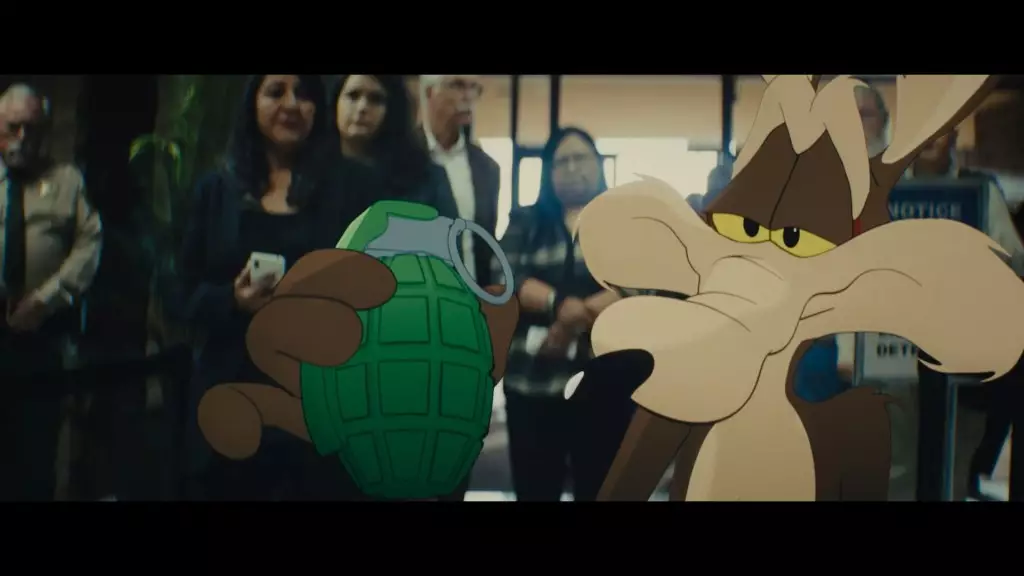Warner Bros. recently screened their film “Coyote vs. Acme” to potential buyers, but the response was not as positive as they had hoped. The film, which is an animated live-action hybrid, had a production cost of over $70 million. However, both Netflix and Paramount offered bids that fell well below the asking price, ranging from $30-50 million. This left Warner Bros. disappointed, as it seemed that rivals were not willing to pay what the film had cost to make.
As a result of the low bids and lack of interest, Warner Bros. had to take a $70 million writedown on their Q3 earnings. This setback is significant, especially considering that the movie was not even released. In fact, Warner Bros. made the decision back in early November to not release “Coyote vs. Acme,” leaving the film in a state of limbo. Despite this, there may still be a glimmer of hope for the movie’s future, although it seems unlikely at this point.
According to a source close to the production, Warner Bros. is not actively pushing for a sale of the film. This lack of effort suggests that the studio is more interested in recovering the cost of the film rather than making a profit. It begs the question of whether there are any other potential buyers who could save the film from being abandoned. Is there someone like David Ellison, who could acquire the rights and release it through Skydance’s Netflix output deal? The silence from potential saviors is concerning.
The situation surrounding “Coyote vs. Acme” has not gone unnoticed by industry insiders and filmmakers. Phil Lord, the director of “The Lego Movie,” expressed his frustration with Warner Bros. on Twitter, accusing them of using a tax loophole to write off the entire film. Lord’s comments suggest that the studio’s actions may be anti-competitive and aimed at facilitating a merger with a larger movie studio. Lord also mentioned the possibility of the film ending with a congressional hearing, hinting at the potential legal and ethical implications behind its cancellation.
The controversy surrounding the film attracted the attention of Texas congressman Joaquin Castro, who criticized Warner Bros. for scrapping fully made films for tax breaks. Castro believes that this behavior is predatory and anti-competitive, and he called for the Justice Department and FTC to review the studio’s conduct. The comparison of burning down a building for insurance money implies that Warner Bros.’ actions may be seen as unethical and destructive.
David Zaslav, the CEO of Warner Bros., has faced scrutiny regarding his involvement in the decision to cancel “Coyote vs. Acme.” Although his administration denies any direct involvement, there is a pattern of significant cost-cutting measures under CFO Gunnar Wiedenfels. This raises questions about the studio’s priorities and the extent to which financial considerations overshadow artistic merit.
In an interesting twist, the South by Southwest (SXSW) festival expressed interest in screening “Coyote vs. Acme.” However, Warner Bros. declined the offer, leaving it up to the festival’s organizers to determine the fate of the film. This missed opportunity highlights the studio’s unwillingness to take risks and explore alternative avenues for releasing the movie.
“Coyote vs. Acme” finds itself in a precarious position, with Warner Bros. struggling to find buyers who are willing to pay the hefty production cost. The studio’s decision to write off the film for tax purposes has sparked criticism from industry professionals and politicians alike. The future of the film remains uncertain, but it serves as a cautionary tale about the challenges and risks involved in the film industry.

